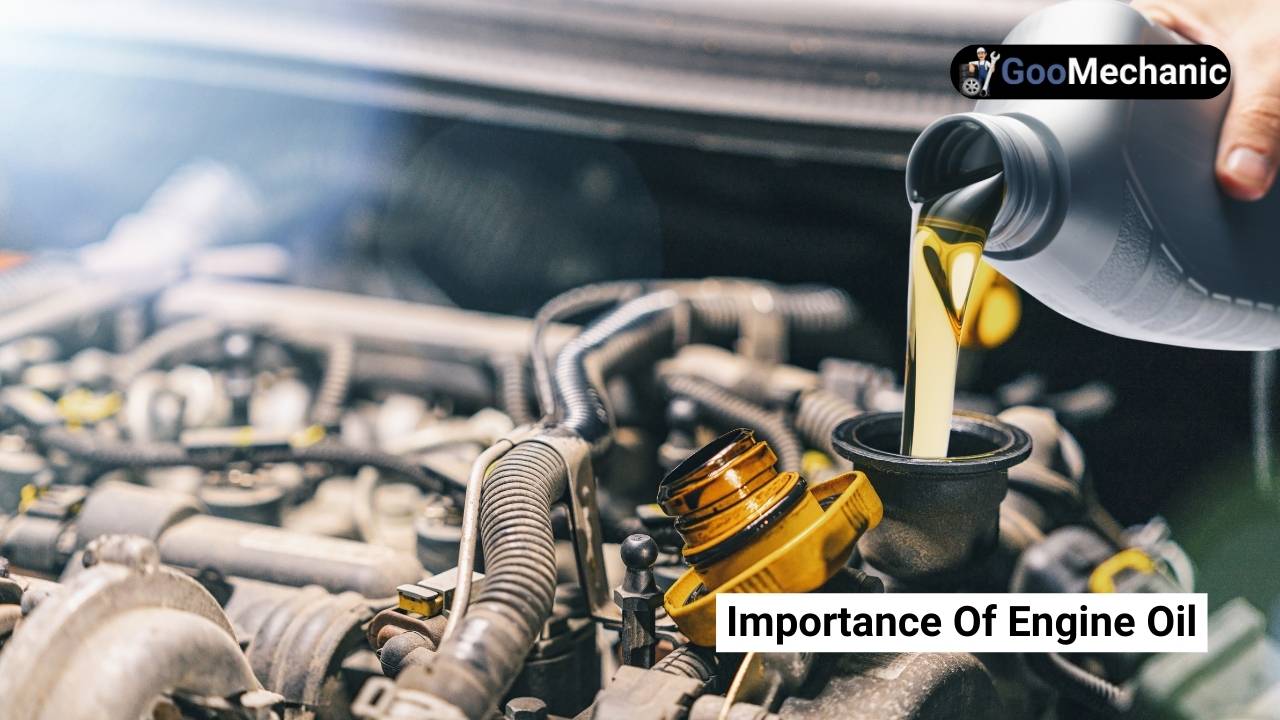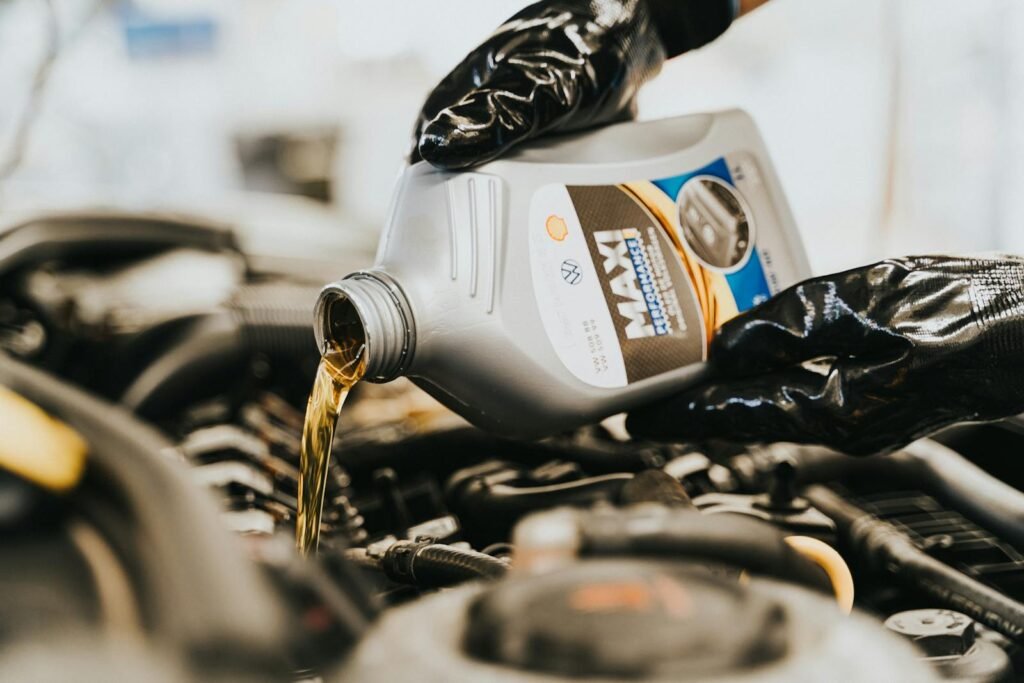Change engine oil every 5,000 to 10,000 kilometers for optimal performance. Consult your car’s manual for specific intervals.
Regular engine oil changes are crucial for maintaining your vehicle’s health and performance. The frequency of oil changes can vary depending on the type of oil used, driving conditions, and the vehicle’s age. Synthetic oils generally allow for longer intervals between changes, whereas conventional oils may require more frequent changes.
Regular oil changes help lubricate engine components, reduce wear, and prevent overheating. Neglecting this maintenance can lead to decreased efficiency and potential engine damage. Always refer to your car’s manual for manufacturer recommendations to ensure proper care and longevity of your vehicle. Keeping up with oil changes is a simple yet essential aspect of car maintenance.
Importance Of Engine Oil

Engine oil is the lifeblood of your car’s engine. It plays a critical role in maintaining the health and performance of your vehicle. Understanding its importance can help you decide the optimal time to change it.
Lubrication Role
Engine oil provides crucial lubrication to all moving parts inside the engine. This lubrication reduces friction and wear. Without proper lubrication, engine components would grind against each other. This would lead to significant damage and costly repairs.
The oil forms a thin film between parts like pistons, bearings, and camshafts. This film minimizes direct metal-to-metal contact. The result is smoother operation and longer engine life.
Cooling Function
Engine oil also has a vital cooling function. As the engine runs, it generates a lot of heat. The oil absorbs this heat and helps disperse it away from the engine components.
By carrying away excess heat, the oil prevents the engine from overheating. This cooling effect is essential for maintaining optimal engine temperature. Overheating can cause severe engine damage and reduce performance.
Proper oil levels and timely changes ensure efficient cooling. This helps keep your engine running smoothly and reliably.
Factors Affecting Oil Change Interval

Determining the right time to change your car’s engine oil involves several factors. These factors ensure your vehicle runs smoothly and prolongs its engine life.
Driving Conditions
Your driving conditions greatly impact the oil change interval. If you drive in stop-and-go traffic, your engine works harder. This means you’ll need to change the oil more frequently. Extreme weather conditions also affect the oil’s lifespan. Hot climates can cause oil to break down faster. Cold weather may cause oil to thicken, putting extra strain on the engine.
- City driving: Frequent stops and starts require more frequent oil changes.
- Highway driving: Consistent speeds generally extend oil life.
- Extreme temperatures: Both hot and cold climates can reduce oil efficiency.
Engine Type
The type of engine your car has also plays a significant role. Modern engines are more efficient and may have longer intervals. Older engines might need oil changes more often. Diesel engines often require different oil compared to gasoline engines. Synthetic oils offer better protection and longer intervals.
| Engine Type | Oil Change Interval |
|---|---|
| Modern Gasoline Engine | Every 10,000 to 15,000 kilometers |
| Older Gasoline Engine | Every 5,000 to 7,500 kilometers |
| Diesel Engine | Every 7,500 to 10,000 kilometers |
| Using Synthetic Oil | Every 15,000 to 20,000 kilometers |
By understanding these factors, you can better determine the right interval for your car. Regular oil changes help maintain engine performance and extend its life.
Manufacturer Recommendations
Changing your car’s engine oil is crucial for its performance. Following manufacturer recommendations ensures your engine runs smoothly. These guidelines help maintain your car’s longevity and efficiency.
Owner’s Manual Guidelines
Your car’s owner’s manual is the best source for oil change intervals. Manufacturers provide specific recommendations for each model. They consider engine type, driving conditions, and other factors.
Here is a sample table for common car models:
| Car Model | Recommended Kilometers |
|---|---|
| Honda Civic | 10,000 km |
| Toyota Corolla | 8,000 km |
| Ford Focus | 12,000 km |
Always follow the manual’s instructions for the best results. Skipping oil changes can harm your engine.
Service Intervals
Service intervals are another key aspect of oil changes. Manufacturers set these intervals based on extensive testing. Regular service intervals ensure your engine remains in top condition.
Here are some common service intervals:
- 5,000 km: For older cars or severe driving conditions.
- 7,500 km: For moderate driving and newer cars.
- 10,000 km: For optimal conditions and high-quality oil.
Regular service keeps your car running efficiently. Missing service intervals can lead to engine damage.
In conclusion, following manufacturer recommendations is essential. Your owner’s manual and service intervals are your best guides. Regular oil changes keep your engine healthy and your car on the road.
Signs You Need An Oil Change

Knowing the signs you need an oil change can save your car. Regular oil changes ensure your engine runs smoothly. Ignoring these signs can lead to severe engine damage. Here’s how to tell if your car needs an oil change.
Oil Color And Consistency
Fresh oil is amber and clear. Old oil turns dark and dirty. Check your oil with the dipstick. If the oil is dark or thick, it’s time for a change. Clean oil helps your engine work efficiently.
Engine Noise
Engines should run quietly. Louder noises mean the oil isn’t lubricating properly. If you hear knocking or grinding, check the oil. Fresh oil can silence these engine noises.
Benefits Of Regular Oil Changes
Regular oil changes are crucial for your car’s health. They keep the engine clean and running smoothly. Fresh oil reduces friction and keeps engine parts cool. Here are some key benefits of changing your car’s oil regularly:
Improved Performance
Changing the oil improves your car’s performance. Fresh oil lubricates engine parts better. It reduces wear and tear. This makes the engine run more efficiently. You may notice quicker acceleration and smoother driving.
Extended Engine Life
Regular oil changes extend your engine’s life. Clean oil protects engine parts from damage. It removes dirt and debris. This prevents engine parts from wearing out quickly. Over time, this can save you money on repairs.
Types Of Engine Oil
Choosing the right engine oil is crucial for your car’s health. Different types of engine oil can affect how often you need to change it. This section will cover the various types of engine oil and their benefits.
Synthetic Vs. Conventional
Synthetic oil is made from chemical compounds. It offers better performance in extreme temperatures. Synthetic oil can last up to 15,000 kilometers. It is more expensive but worth the cost for high-performance vehicles.
Conventional oil comes from natural crude oil. It is less refined than synthetic oil. This oil type usually needs changing every 5,000 kilometers. It is cheaper and works well for older cars or less-used vehicles.
High-mileage Options
High-mileage oil is designed for cars with over 75,000 kilometers. It contains additives that help reduce oil consumption. This oil type helps prevent leaks and reduces engine wear. It can extend the life of older engines.
| Oil Type | Change Interval | Best For |
|---|---|---|
| Synthetic | Up to 15,000 km | High-performance cars |
| Conventional | Every 5,000 km | Older or less-used cars |
| High-Mileage | Varies | Cars with over 75,000 km |
Choosing the right type of engine oil can save you money and extend your car’s life. Always check your car’s manual for the recommended oil type and change interval.
Steps To Change Engine Oil
Changing your car’s engine oil is crucial for its performance. This guide will take you through the steps to change engine oil, ensuring your car runs smoothly. Follow these steps for a hassle-free oil change.
Preparation
- Park your car on a level surface.
- Gather the necessary tools: oil filter wrench, drain pan, and new oil.
- Ensure the engine is cool before you start.
Preparation is key. Make sure you have everything ready. This includes tools and materials.
Drain And Refill
- Place the drain pan under the oil drain plug.
- Use a wrench to remove the drain plug.
- Let the old oil drain completely into the pan.
- Replace the drain plug securely.
- Remove the old oil filter using an oil filter wrench.
- Lubricate the new oil filter gasket with a bit of new oil.
- Screw the new oil filter in place.
- Pour the new oil into the engine using a funnel.
- Check the oil level with the dipstick.
Ensure you dispose of the old oil responsibly. Never pour it down the drain.
Following these steps will help keep your engine in top condition. Regular oil changes are essential for maintaining your car’s health.
Common Myths About Oil Changes
Many drivers believe myths about oil changes. These myths can lead to costly mistakes. Understanding the truth helps maintain your car better. Let’s debunk some common myths about oil changes.
Oil Change Frequency
One of the biggest myths is the 3,000-mile rule. Many think they need an oil change every 3,000 miles. This is not always true. Modern engines and oils have improved. Most cars can go longer between oil changes.
Check your car’s manual for the right interval. Many new cars suggest oil changes every 7,500 to 10,000 miles. Following the manual helps your engine last longer.
Another myth is that frequent oil changes keep your engine cleaner. This isn’t always the case. Quality oil and filters do a better job. Changing oil too often can waste money and oil.
Oil Quality
Some believe all oils are the same. This is a myth. Oil quality varies greatly. Using the right oil is crucial for your engine.
There are different types of oil: synthetic, semi-synthetic, and conventional. Synthetic oil offers better protection and lasts longer. Semi-synthetic is a blend of both. Conventional oil is less expensive but may need more frequent changes.
Always use the oil type recommended by your car’s manual. This ensures your engine gets the best protection. Using the wrong oil can cause damage and reduce engine life.
Here is a quick comparison of oil types:
| Oil Type | Pros | Cons |
|---|---|---|
| Synthetic | Better protection, lasts longer | More expensive |
| Semi-Synthetic | Good protection, moderately priced | Shorter lifespan than synthetic |
| Conventional | Least expensive | Needs more frequent changes |
Myths about oil changes can be confusing. Knowing the facts helps you make better choices for your car. Follow your car’s manual and use quality oil for the best results.
Frequently Asked Questions
How Many Km To Change Engine Oil?
Change engine oil every 5,000 to 10,000 km, depending on your vehicle’s manufacturer recommendations and driving conditions. Regular maintenance ensures engine longevity. Always consult your owner’s manual for specific guidelines.
How Often Should We Change Engine Oil In A Car?
Change engine oil every 3,000 to 5,000 miles or follow your car manufacturer’s recommendations. Regular oil changes maintain engine health. Check your owner’s manual for specific intervals.
At What Mileage Should Engine Oil Be Changed?
Change engine oil every 3,000 to 5,000 miles for conventional oil. For synthetic oil, change every 7,500 to 10,000 miles. Always consult your vehicle’s manual for specific recommendations. Regular oil changes ensure optimal engine performance and longevity.
How Many Miles Does Car Engine Oil Last?
Car engine oil typically lasts between 3,000 to 5,000 miles. Check your owner’s manual for specific recommendations.
Conclusion
Regularly changing your car’s engine oil is essential for its longevity. Most cars need an oil change every 5,000 to 7,500 kilometers. Always consult your car’s manual for specific recommendations. Keeping up with oil changes ensures optimal engine performance and prevents costly repairs.
Stay proactive and keep your engine running smoothly.
